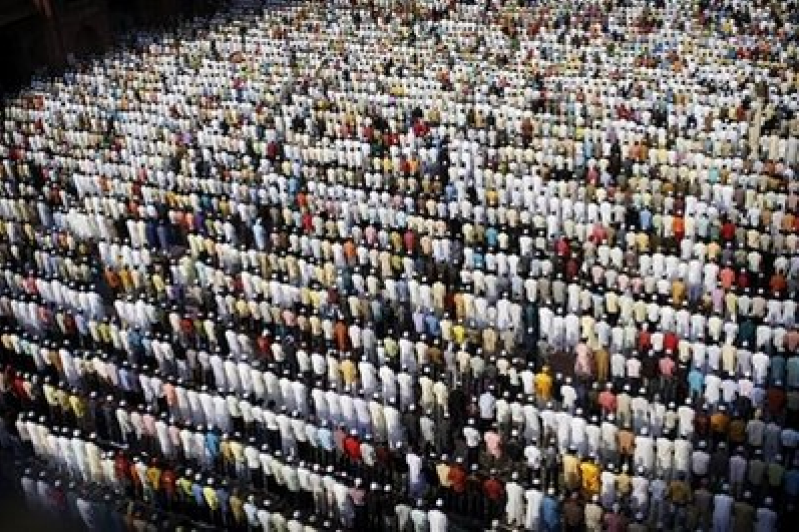
Nearly one out of every four persons in the world today is Muslim, according to the results of a comprehensive demographic study of more than 200 countries.
Though estimates on the size of the global Muslim population have ranged widely in the past, from one billion to 1.8 billion, the new study by the Pew Research Center's Forum on Religion & Public Life puts to rest the uncertainty, pinning the number of Muslims of all ages living in the world today at 1.57 billion.
The study also revealed more clearly how Muslims are distributed in the world, noting that more than 60 percent of the global Muslim population is in Asia and about 20 percent is in the Middle East and North Africa.
Not surprisingly, the Middle East-North Africa region was found to have the highest percentage of Muslim-majority countries, with more than half of the 20 countries and territories in that region having populations that are approximately 95 percent Muslim or greater.
But the study also revealed that the world’s minority Muslim populations are often quite large. India, for example, has the third-largest population of Muslims worldwide. And China has more Muslims than Syria, while Russia is home to more Muslims than Jordan and Libya combined.
When breaking the Muslim population down by denomination, the Pew study revealed that around 10-13 percent of the total are Shia Muslims and 87-90 percent are Sunni Muslims. The Pew Forum noted, however, that unlike the figures for the overall Muslim population, figures for the Sunni and Shia population are less precise as data on sectarian affiliation have been infrequently collected or, in many countries, not collected at all.
“Therefore, the Sunni and Shia numbers reported here are expressed as broad ranges and should be treated as approximate,” the Pew Forum reported.
The new findings on the world Muslim population lay the foundation for a forthcoming study by the Pew Forum, scheduled to be released in 2010, that will estimate growth rates among Muslim populations worldwide and project Muslim populations into the future.
The Pew Forum said it also plans to launch a similar study of global Christianity in 2010.
The forthcoming studies are part of a larger effort – the Global Religious Futures Project, jointly funded by The Pew Charitable Trusts and the John Templeton Foundation – that aims to increase people's understanding of religion around the world.






